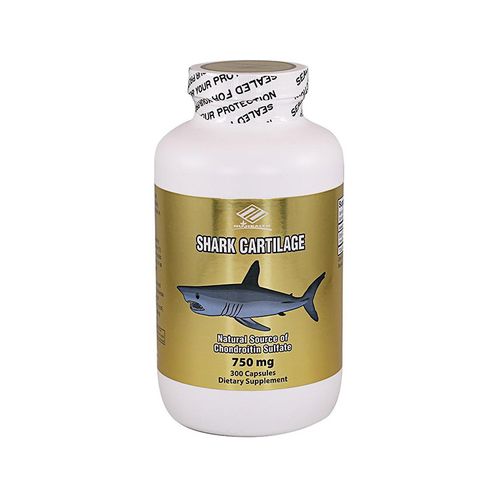Although shark cartilage products remain widely available, there's no scientific evidence to show that they cure cancer, as advocates claim.
That's the conclusion of a Johns Hopkins University paper, which highlights the "falsehoods that have led some people to believe that crude shark cartilage extracts may be an effective, alternative cancer treatment.
Hype Or Hope?
Early experiments by the acclaimed Harvard Medical School researcher Dr. Judah Folkman ignited interest in shark cartilage. Folkman studied the substance's ability to block angiogenesis the development of blood vessels that nourish tumors.
But Gary K. Ostrander, a research professor in the departments of biology and comparative medicine at Johns Hopkins, and his colleagues say claims that crude cartilage extracts are effective against cancer represent an "overextension of that work.
Ostrander's paper builds on previous preliminary work, in which he began to describe the discrepancy between the actual science and the public's perception of shark cartilage as a cancer therapy.
"All of us working in cancer would love for this to work as they say, it would solve a lot of problems," says Ostrander. "But the fact is, it doesn't."
Yet Ostrander and others say it is possible that highly purified components of cartilage may one day show some benefit.
Two angiogenesis inhibitors have been purified from shark cartilage, according to the National Cancer Institute (NCI), which is sponsoring two clinical trials to examine its use as a cancer treatment.
Mary Ann Richardson, vice president of research and development at the National Foundation for Alternative Medicine, believes the use of shark cartilage products needs more research. "I think the whole issue is, if people are using these things, we need to investigate them and we need to validate them," she says.
Sharks Do Get Cancer
Ostrander traces the popularity of shark cartilage as a cancer cure to William Lane's 1992 book, Sharks Don? Get Cancer, and the subsequent publicity it received on the CBS News program "60 Minutes."
While shark cartilage distributors insist that sharks do not get cancer, Ostrander's paper offers more than 40 examples, dating back to the mid-1800s, of sharks developing both benign and malignant tumors.
The actual rate of cancer among sharks is not known. But even if sharks are less susceptible to cancer than other organisms, this fact would not support the use of crude cartilage extracts to treat cancer in humans, the authors say.
Finding The Key Component
The products on the market today consist mainly of processed, powdered cartilage. "You're going to be consuming crude cartilage containing lots and lots of things in it," he explains. Even at a higher dose, you may not be consuming enough of the key component, he adds.
While particular components of shark cartilage ultimately may prove beneficial, Ostrander says more research is needed to identify what the key substances are, their cause of action, potential side effects, best routes of delivery and their effectiveness.
